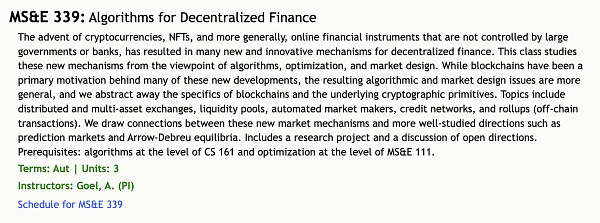It's Coming and It's Coming Fast: Issue #23 of web3🤝education
Hello educator and web3 frens,
Have you heard the phrase "Be quick, but don't hurry"? This is one of my favorite lines from famed college basketball coach John Wooden. I interpret this to mean thinking expeditiously, but not doing so at a rate that will increase errors. Sometimes I feel like there is a connection between those words and the metaverse.
For every timeline I lay out that says the metaverse is 10, 15, or even 20 years away, I'll read about a metaverse implementation that is happening right now. In this week's newsletter, I am laying out some of those present-day fulfillments of web3.
Most of these focus on higher ed. One could argue that innovation in education often starts in the high ed sector and moves down to the lower levels. I am not here to enter into that debate. What the post-pandemic world is showing us is that higher ed may not have a choice. In addition, the last couple of years has also shown us that higher ed is very capable of implementing these changes.
Click through the resources for the week to learn more about some trends happening in higher ed in the web3 space.
🏫 Metaversities are here and they are open for business
👾 Virtual reality can facilitate valuable soft skills
💻 Programmers for web3 are for hire
🧑🏫 College classes in web3 are filling up
Transforming Classrooms in Higher Ed — digital.et-mag.com
Metaversities are spreading across higher ed. This article about transformation in the college classroom discusses some trends across the ten metaversities that are launching this fall.
There are a number of interesting applications of AI, VR/AR, and metaverse happening right now in higher ed. In reading these descriptions it felt like we are much closer to this future than some have been predicting. The article includes a video linked below discussing some of the data around learning in these environments.
Does learning on a metaversity campus work? See the data from the global leaders, Morehouse College by watching the video below.👇
A Study in Virtual Reality and Skills Training — www.pwc.com
We often talk about the skills needed to succeed in a VR environment. Or what skills will VR help us to foster? What about using VR to foster skills? This is a whole new discussion I hadn't thought about until I came across this report by PricewaterhouseCoopers.
There are a number of helpful data points around how VR is being used for soft skills training in our workforce. It touches on the impact of remote work, efficient ways to upskill employees, and the need for leadership and resilience in the workforce.
Got Programmers? — www.forbes.com
Facebook, Google, and Amazon all have more programmers working for them than the total number of web3 programmers in the entire world. You could say this means those tech mega companies have a lot of programmers, or that there is a severe lack of programmers to make this web3 dream a reality.
Let's look at some numbers, there are about 31.1 million programmers currently working across the entire globe today. Compared to about 18,500 web3 programmers. Maybe we are still early, but to me, it feels like the ratio is way out of whack.
This article lays out the specific needs companies have when hiring for their blockchain applications. It also outlines the mindsets and skills an aspiring web3 programmer should be coming with to entire this emerging job market.
Help is On the Way
This Tweet is a great way to wrap up this newsletter's focus on metaversities, being trained using VR, and the need for programmers in web3. Our institutions of higher ed often break through to new frontiers that trickle down to the K-12 levels. In addition, we often see these innovations happening at the more prestigious and selective universities.
The news about the new selection of web3 and blockchain-related courses at Stanford University is an excellent example of that. We would like to see these offerings spread across a more diverse and accessible range of institutions of high ed, but this is a good start. Much like the computing and internet revolutions of 50 and 20 years ago, we need to rely on these larger universities with large amounts of expendable cash and autonomy to implement these changes first.
Let's keep a close eye on how closely behind our smaller community and public universities will be able to follow.
Thank you for stopping by for another issue of my web3🤝education newsletter. You can subscribe to the newsletter here or if you’re on LinkedIn go check out a version of this newsletter on my LinkedIn page and give me a follow.
Link to all my work by checking out my website.








